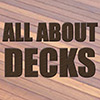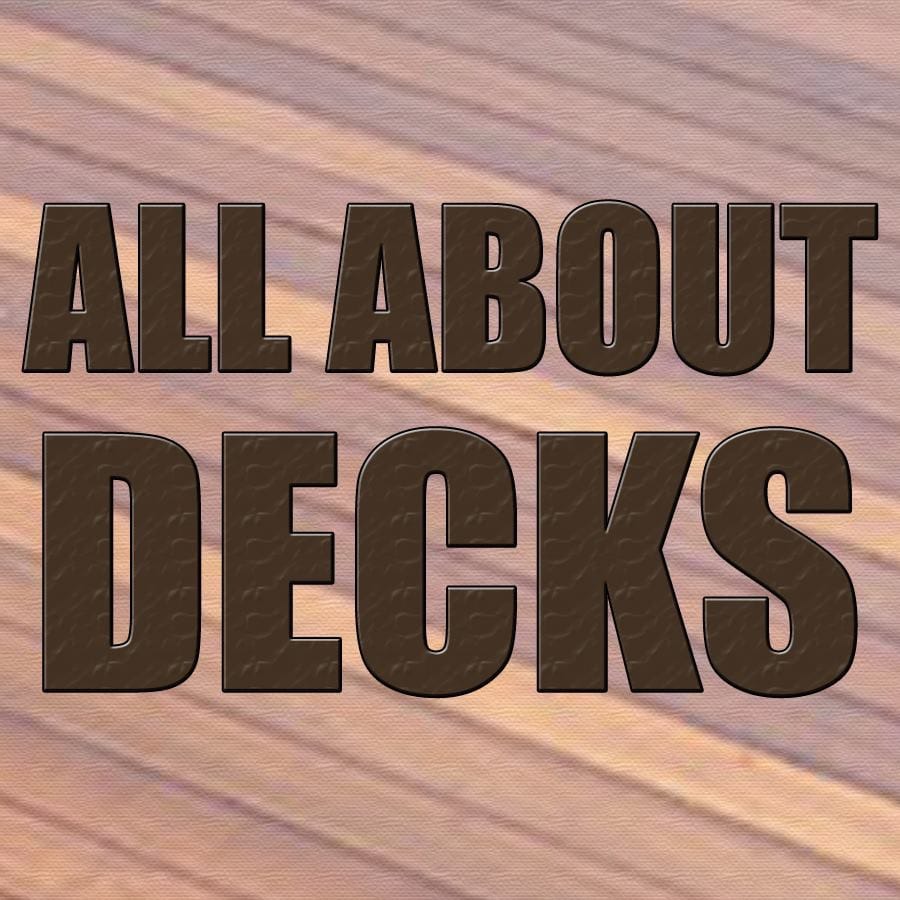Have you ever wondered, “is my deck safe?” Having a safe deck is one of the most important parts of owning a deck. Decks are great for entertaining, holding milestone family events, hanging out with friends, and relaxing on in nice weather. However, if a deck is not properly cared for, it can become a liability, and worst case, cause injury or worse to your friends or loved ones.
It is very important to consistently have your deck professionally inspected for defects. Here are a few things your decking professional should look at to ensure your deck is safe to use.
Deck Material
Your deck’s material is an important part of maintaining your deck’s structure. Inspect your deck for splitting or cracking wood, which can get worse as time passes. Additionally, your deck may have rot. This can quickly compromise your deck material’s integrity and cause soft spots, warping, and loose boards that can all become dangerous.
The use of plastic and composite-lumber for deck materials is becoming more common. However, the majority of decks are built with pressure-treated wood, cedar, or some other type of wood. Whatever type of deck material you have, be sure to have each board inspected for cracks, splinters, insect infestation, rot, popped fastener heads, warping, or other problems. Have the damaged decking replaced as soon as possible.
Ledger and Flashing
The ledger is the long horizontal board that attaches your deck to your house. The flashing is the piece of plastic or metal that prevents water from getting in between the ledger and house. If the flashing is pulling up from its proper place, has a lot of mud and debris, or is cracking you need to get it repaired.
How important is it to maintain the integrity of the ledger and the flashing of a deck? It is extremely important, maybe a matter of life or death, to make sure that the ledger is not rotted and the flashing is intact. “The number one reason why decks collapse is because the ledger is badly decayed or not properly fastened to the house.”
Hardware
Inspecting your deck’s hardware is another crucial part of keeping your deck safe. If your hardware is showing signs of rusting or wear, you should have a professional come and replace those pieces. Additionally, making sure all the screws and joints are tightly fastened throughout the year can keep your deck from collapsing.
Railings
Railings are a very important safety feature on your deck. Any decks taller than 30 inches above the ground, are required to have railings around the perimeter of the deck.
If your railings are wiggling or leaning, that is a sign they may be about to fall or break. Keep an eye on them as the moisture from different weather conditions sets in. This can wreak havoc on your deck’s railings. Sadly, most deck-related injuries are caused by a person leaning on a compromised deck railing and falling.
To inspect a deck’s railings, check to ensure that each rail post is attached to the deck’s frame. Next, be sure that the frame and the railings are free from all types of problems listed above.
Then, make sure that the posts are fastened to the frame with the correct bolts and screws. Each post should be inspected to make sure they’re well-secured and showing no signs of decay.
Cleanliness
While cleanliness may not seem important, a dirty deck can hide other factors that will tip you off to a splitting or rotting deck. Additionally, keeping your deck free of mildew is an important way to keep your deck free of rot and mold.
A small amount of bleach (1 cup of bleach per gallon of water) can be used to stop mildew growth on your deck. Use a mop to clean your deck with the solution and then use just water to rinse and let air dry.
Environmental Factors
Make sure your deck is also clear of environmental hazards, such as flammable surfaces next to fire pits, low-hanging branches, and shorted wiring. Use common sense and make sure that you are always looking for environmental hazards on or near your deck.
Know Your Codes
Lastly, make sure you are up-to-date on the various codes for your county or city. The city of Omaha has all of its residential deck guidelines available online so you can be sure that you have the most current safety features in mind when it comes to your deck.
If it’s time for your deck to be inspected, contact us! We’re happy to inspect your deck for you to ensure your deck is up to code and safe to use all year long.

